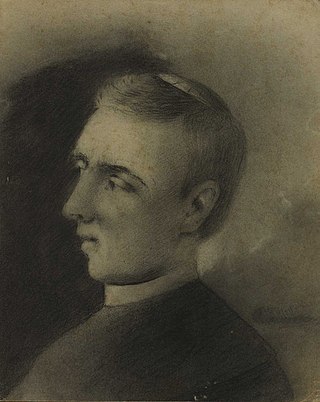Literature
Assigns the passion for reading classic works of the universal literature of her maturity as a writer over the years. Her favorite writers are, in tragedy, the Greek Euripides; Shakespeare in tragicomedy; the great Russian novelists Tolstoy and Dostoevsky. In the tale, tends to Chekhov. See in Marcel Proust the revolution of the concept of romance. In poetry she is a great admirer of Rimbaud. In Brazilian literature she appreciates the dapper style of Machado de Assis and the creations of João Cabral de Mello Neto and Gerardo Mello Mourao. Her favorite classic is "In Search of Lost Time" by Proust. As a bedside book she has the Jerusalem Bible. Believes that her best book is "Luz do Abismo", published in 1996.
In 2012, held the lecture "Matias, o magro" in the auditorium of the Museum of Pernambuco State, under the auspices of the Association of Friends of Museum, trying on the life and achievements of Count of Alegrete Matias de Albuquerque, a Portuguese nobleman who was governor of the Captaincy of Pernambuco and one of the Governors-General of Brazil.
In 2014 follows with the final preparations for the publication of her new book "Múltiplas Verdades", which deals with the interaction of the reader-writer, the "womb" of literary creation, according to the author. Started the documentary searches for structuring other book of historical fiction, "O Seminário" on the traditional and prestigious Seminary of Olinda, founded in 1801, and its leading role in Pernambuco revolutionary cycle.

Ariano Vilar Suassuna was a Brazilian playwright and author. He was the driving force behind the creation of the Movimento Armorial. He founded the Student Theater at Federal University of Pernambuco. Four of his plays have been filmed, and he was considered one of Brazil's greatest living playwrights of his time. He was also an important regional writer, doing various novels set in the Northeast of Brazil. He received an honorary doctorate at a ceremony performed at a circus. He was the author of, among other works, the Auto da Compadecida and A Pedra do Reino. He was a staunch defender of the culture of the Northeast, and his works dealt with the popular culture of the Northeast.

Joaquim Manuel de Macedo was a Brazilian novelist, doctor, teacher, poet, playwright and journalist, famous for the romance A Moreninha. He is considered the first Brazilian novelist.

Federal University of Pernambuco is a public university in Recife, Brazil, established in 1946. UFPE has 70 undergraduate courses and 175 postgraduate courses. As of 2007, UFPE had 35,000 students and 2,000 professors. The university has three campuses: Recife, Vitória de Santo Antão, and Caruaru. Its main campus, Campus Reitor Joaquim Amazonas, is located in western Recife, in the Cidade Universitária neighborhood. The Recife Law School, established in 1827, is located downtown.

Pedro de Araújo Lima, Marquis of Olinda was a politician and monarchist of the Empire of Brazil. His long political career spanned the reigns of John VI, Pedro I and Pedro II. He was also one of the founders of the Brazilian Conservative Party.

The Areopagus Lodge, was the first Masonic lodge in Brazil and the first secret society in Pernambuco. It was founded in 1796 in Itambé, Pernambuco by Manuel Arruda da Câmara, a former Carmelite friar who had been educated in France. It was inspired by the ideals of the French Revolution including the Conspiracy of Suassuna which aimed to create an independent republic allied to Napoleon Bonaparte. The failure of this attempted coup meant that the Lodge was closed in 1802.

Frei Joaquim do Amor Divino Rabelo, the religious name of Joaquim da Silva Rabelo, commonly known as Frei Caneca, was a Brazilian religious leader, politician, and journalist. He was involved in multiple revolts in Northeastern Brazil during the early 19th century. He acted as the main leader on the Pernambuco Revolt. As a journalist, he founded and edited Typhis Pernambucano, a weekly journal used on the Confederation of the Equator.
Maria Firmina dos Reis was a Brazilian author. She is considered Brazil's first black female novelist. In 1859, she published her first book Úrsula, which is considered the first Brazilian abolitionist novel. The book tells the story of a love triangle, in which the system of slavery is put into question.

Events from the year 2008 in Brazil.

Events in the year 1924 in Brazil.

Events in the year 1925 in Brazil.
Flora de Oliveira Lima was a Brazilian socialite, diplomat's wife and daughter of a wealthy planter. She spent her life following her husband's diplomatic appointments and collecting books. Upon her husband's death in 1928, she became the assistant librarian of the Oliveira Lima Library at The Catholic University of America in Washington, DC. In 1930, she became the Brazilian designee of the Inter-American Commission of Women.

Bruno Cavalcanti de Araújo is a Brazilian lawyer and politician, filiated to the Brazilian Social Democracy Party (PSDB). Was discharged from his third term as federal deputy for the state of Pernambuco to assume the Ministry of Cities, appointed by the then acting president Michel Temer.

Evandro Cavalcanti Lins e Silva was a Brazilian lawyer, journalist, writer and politician. He was Prosecutor General of the Republic, Chief of Staff, Minister of Foreign Affairs, and Justice of the Supreme Federal Court.

Nos Tempos do Imperador is a Brazilian telenovela produced and broadcast by TV Globo. It aired from 9 August 2021 to 4 February 2022. The telenovela is written by Thereza Falcão and Alessandro Marson, with the collaboration of Duba Elia, Júlio Fischer, Lalo Homrich, Mônica Sanches and Wendell Bendelack.

Maria Emilia Archer Eyrolles Baltasar Moreira, known to her readers as Maria Archer, was a writer and activist from Lisbon, Portugal.

Robeyoncé Lima is a Brazilian lawyer, activist, and politician. She was elected state deputy for Pernambuco in 2018 and is the first trans woman elected official in the state. She was elected as part of the collective candidacy of JUNTAS 50180, which includes Carol Vergolino, Joelma Carla, Kátia Cunha, and Jô Cavalcanti. Her stated legislative goals center public safety, particularly for trans women. She has spoken out against Bolsonaro's negative comments about sexual minorities and the "intensification of oppression" that has occurred since his election.
Jeronimo de Albuquerque was a nobleman, military leader, and colonial administrator in the Portuguese colony of Pernambuco, Brazil.
Isa Silveira Leal, also known as Isa Leal, was a Brazilian writer, poet, journalist and novelist. She won the Jabuti Award on three occasions and the best poetry book prize from the São Paulo Association of Art Critics.

José Paulo Cavalcanti Filho is a Brazilian lawyer and writer. He graduated from the Recife Faculty of Law. He was secretary general of the Ministry of Justice and (interim) Minister of Justice, under former president José Sarney. He was also President of the Administrative Council for Economic Defense (CADE), of EBN and of the Social Communication Council. Consultant for UNESCO and the World Bank, he occupies chair 27 of the Pernambuco Academy of Letters. As a novelist, he has more than 18 titles written, some published abroad. He is also a deep connoisseur of the work of the Portuguese writer Fernando Pessoa. In 2012, he won the José Ermírio de Moraes award for his book Fernando Pessoa – a quasi-autobiography. It also won first place at the Book Biennial and the Jabuti Prize. He is the winner of the II Molinello Prize, in Italy. He also received awards in countries such as Romania, Israel, Spain, France, Holland, Germany, Russia, England and the United States.

Álvaro de Barros Lins GCC • GCL was a Brazilian lawyer, journalist, professor and literary critic.














